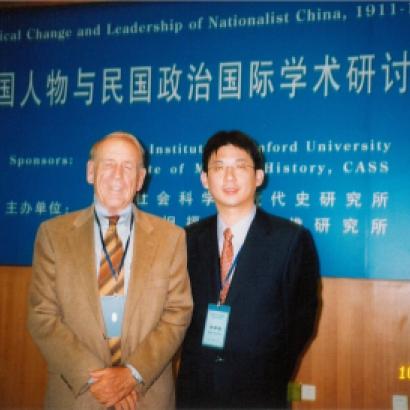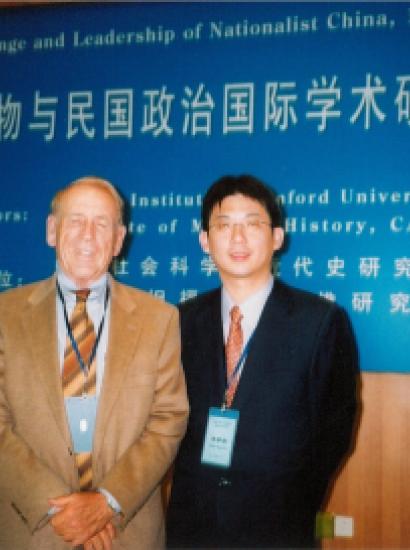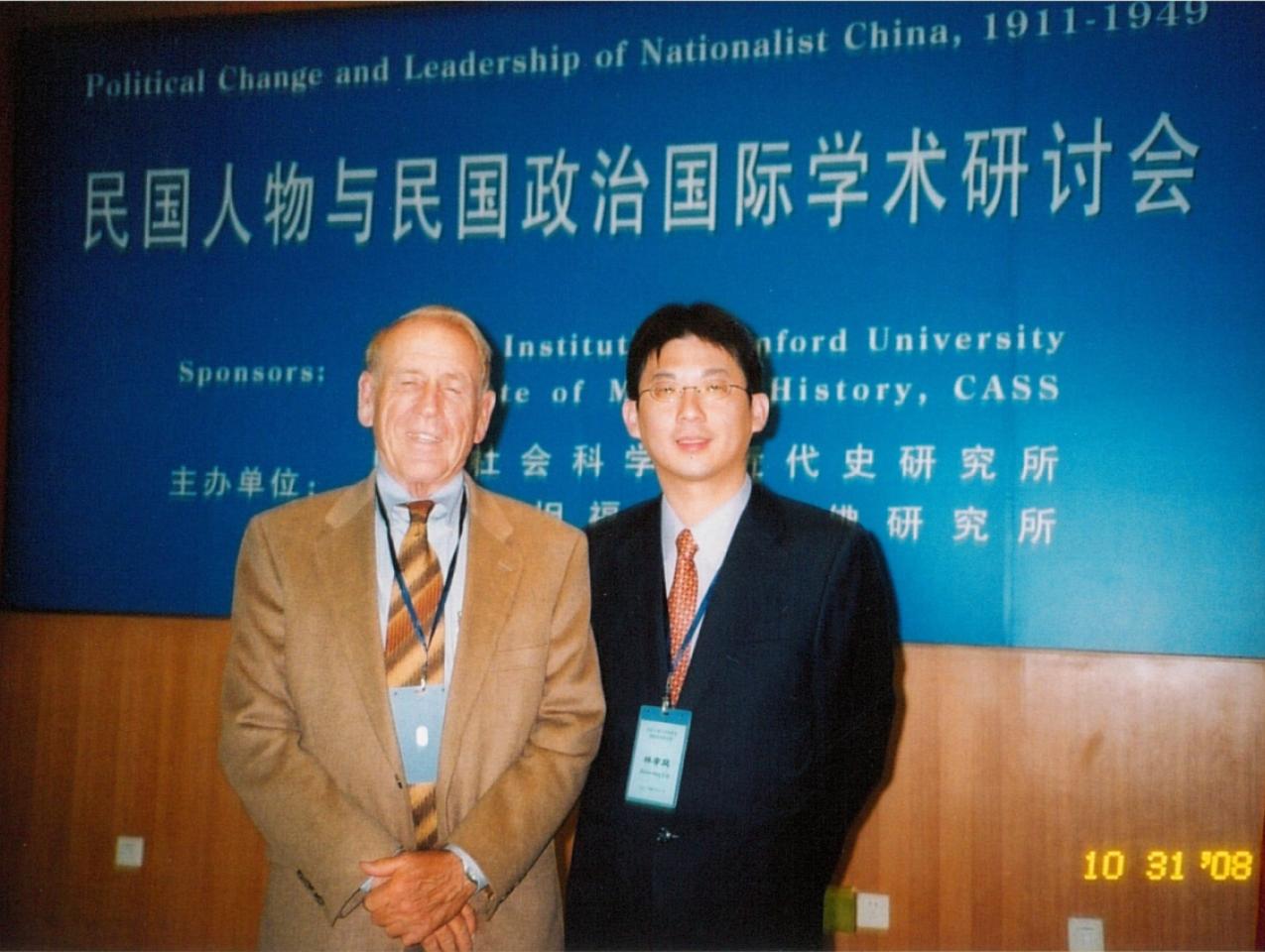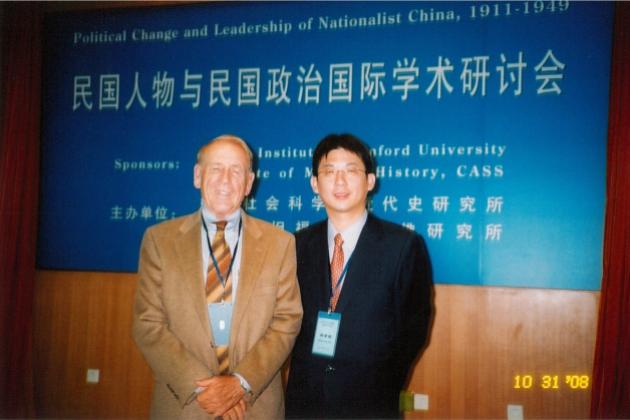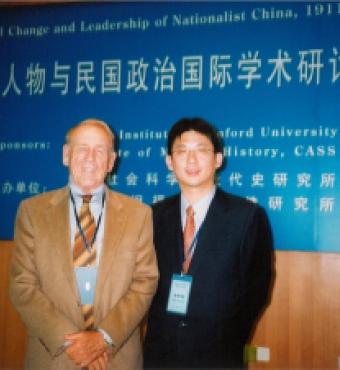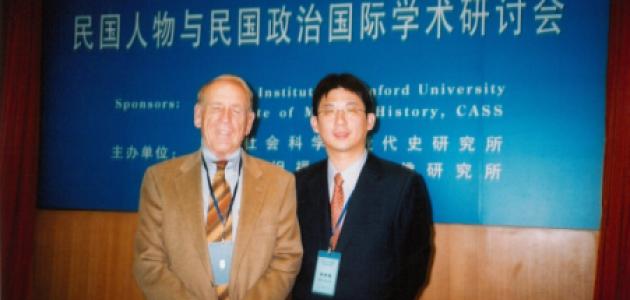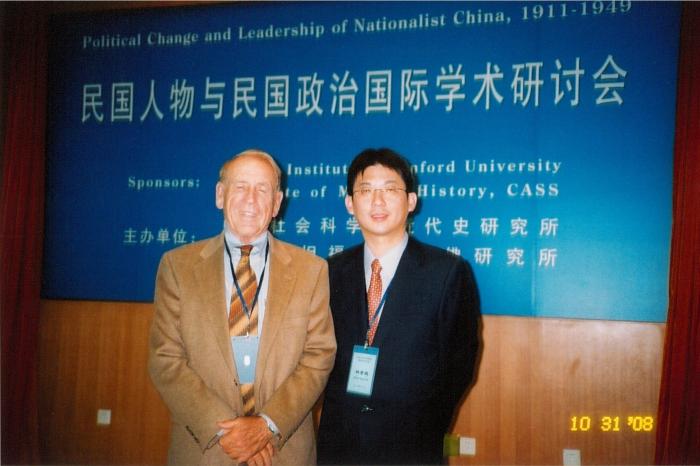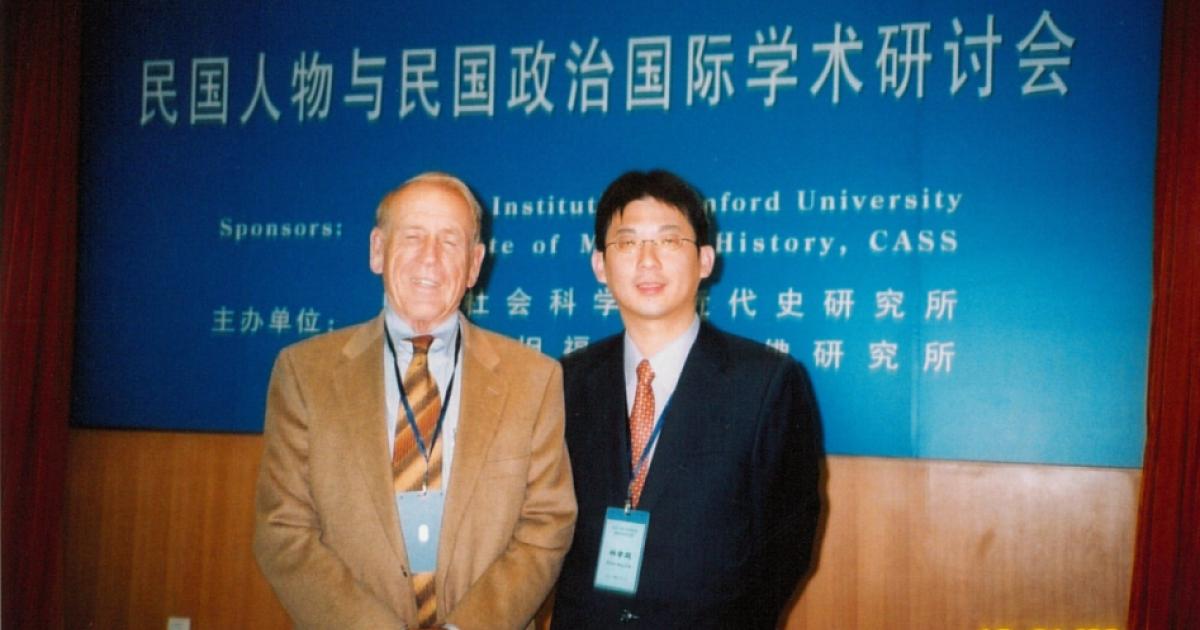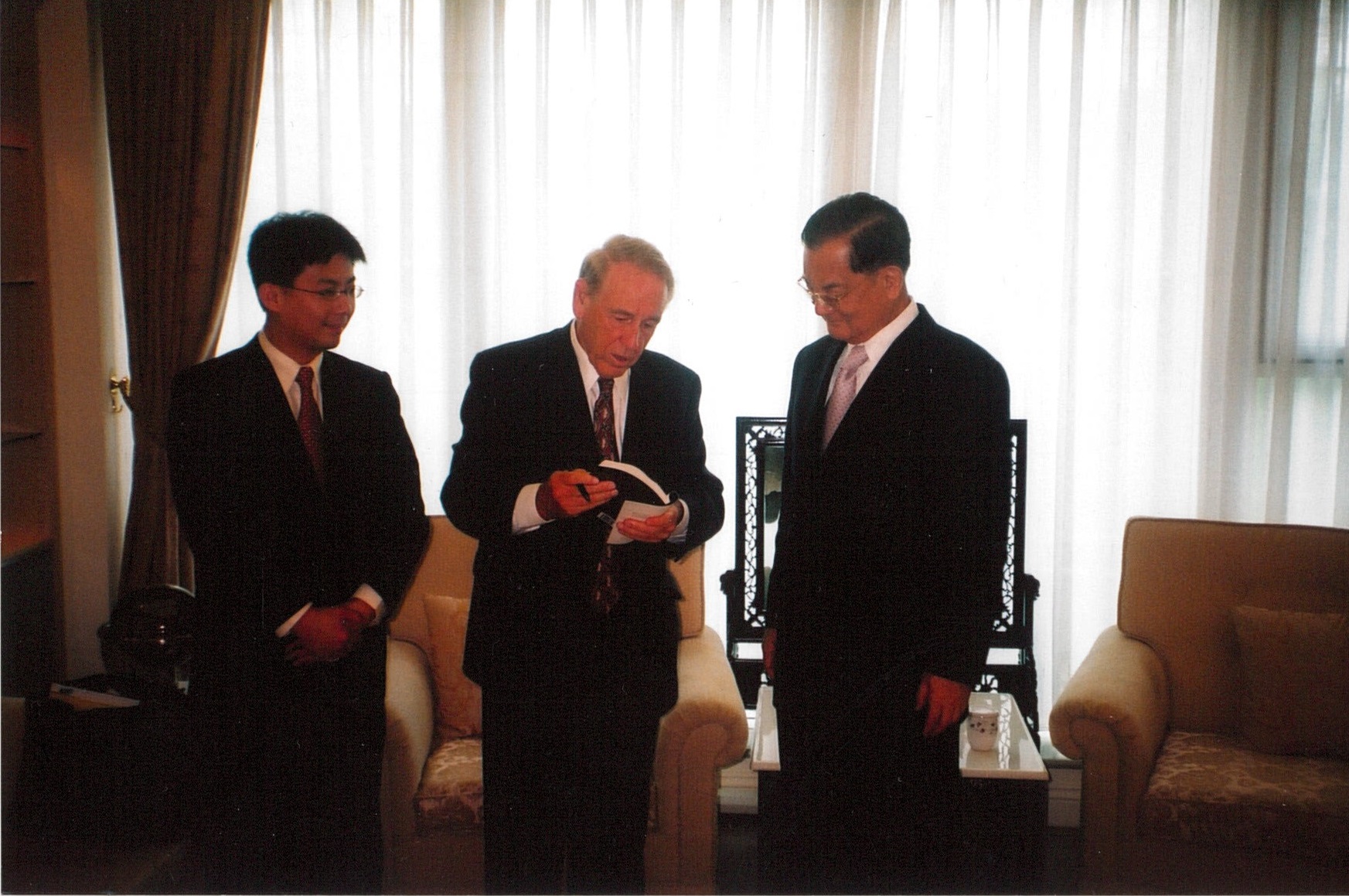
By Hsiao-ting Lin
Hsiao-ting Lin is currently a research fellow and curator for East Asian collections at Hoover Library & Archives. Early in his career, he worked closely with Ramon Myers, former curator of East Asian collections at Hoover L&A, a Hoover senior fellow, and an expert on the history and politics of China. Myers died on November 11th at the age of 86. Below, Lin shares his memories of his close working relationship with one of recent decades’ most influential scholars of US-Chinese relations.
Ramon’s connections with East Asia started in 1950, when, at the age of 21, he was sent to serve in a medical unit of the U.S. infantry battalion in the Korean War. His academic interest was first in Japanese economic history, and then, after spending two years in 1959-60 in Taiwan researching into the island’s colonial past, gradually shifting to the greater China area. In Taiwan, he made many new friends, and among them was a junior technocrat working at the U.S.-sponsored Joint Commission on Rural Reconstruction named Lee Teng-hui. They joined conferences together, frequently discussed Taiwan’s agricultural economy, and admired one another’s scholarly work. Twenty-eight years later, Mr. Lee became the president of Taiwan.
In a 2007 interview, Ramon shared with me how his work at the Hoover Institution started in 1975. In that year the then curator of East Asian Collection John T. Ma resigned. “[Hoover director Glen] Campbell wanted a curator who was also a scholar and a fundraiser,” and felt that Ramon’s wide academic and travel experience would make him a good fit for the job. Due to his remarkable scholarly performance, Ramon was shortly thereafter appointed a senior fellow at Hoover. Significant foundation was laid on Hoover’s East Asian Collection during his tenure, making the Hoover Institution Archives a global hub for modern Chinese and East Asian studies.
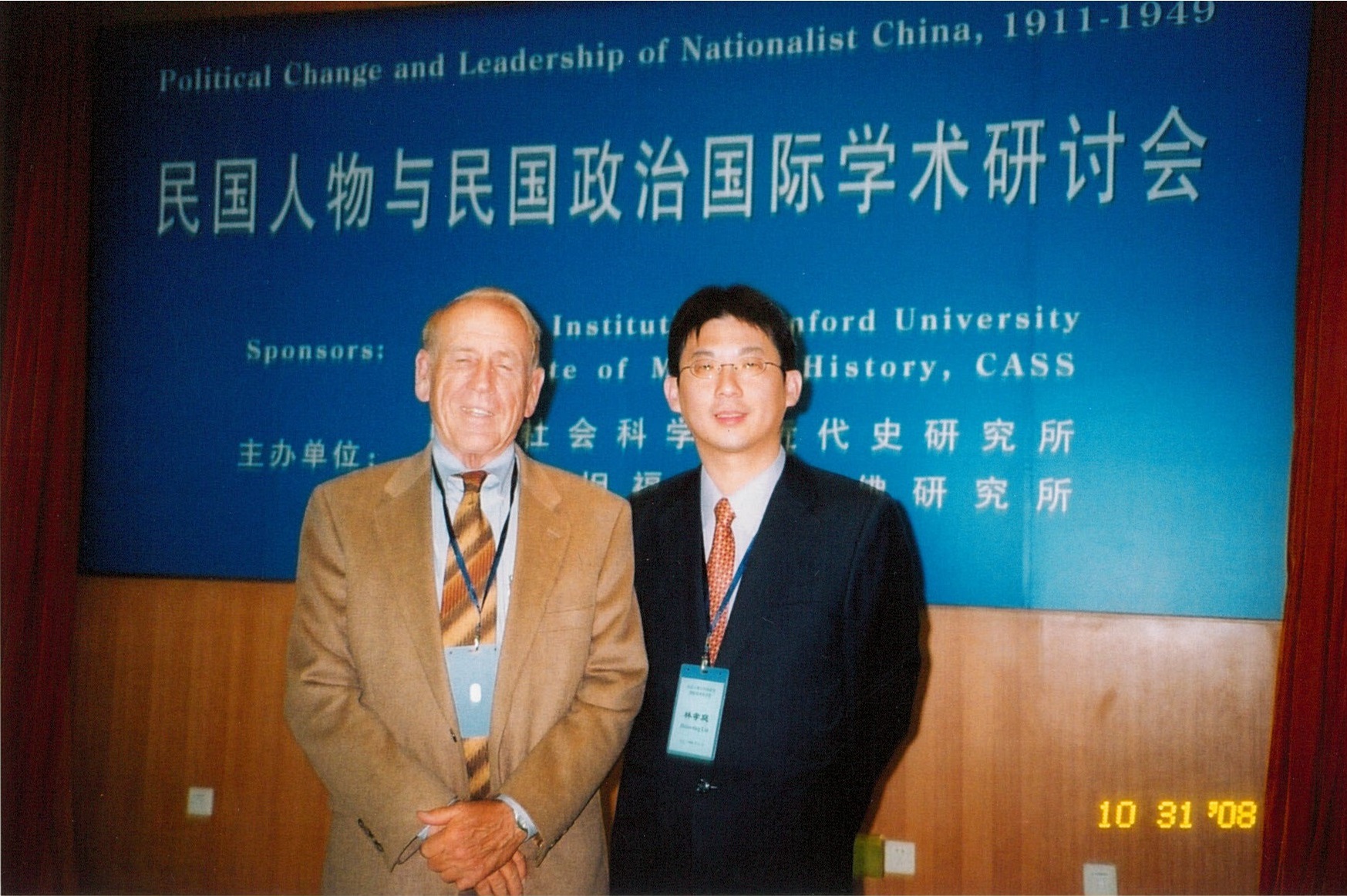
Visitors to Ramon’s office at the Lou Henry Hoover Building would immediately notice a framed photo of Sun Yat-sen when they entered. The photo revealed Ramon’s high esteem for the founding father of the Chinese republic, though his perceptions toward China transformed over time. In his youth he “had a romantic view of China, influenced by Edgar Snow’s works. I thought very highly of the Communists fighting in the hills for freedom and democracy, though they were not always democrats, as I would later learn.” He once confessed to me that he was probably one of the last few foreign scholars to be convinced that the Chinese were on a new road to reform, and were not going to return to Communism. It took over a decade after Deng Xiaoping initiated reforms in the late 1970s for Ramon to change his view completely. Asked about his opinion regarding U.S.-China relations in 2007, Ramon predicted that it was a relationship that was going sour. “The partnership should be becoming more trusting and cooperative but that is not necessarily happening,” he said.
We co-authored several scholarly pieces, including one Hoover Press brochure on the political reforms of the Chinese Nationalist Party (Kuomintang) in Taiwan in the early 1950s. We sometimes agreed to disagree, trying best to convince the other with our respective arguments. Those days when we discussed and debated in order to improve the quality of our research are long gone, but they will be fondly and deeply remembered.




